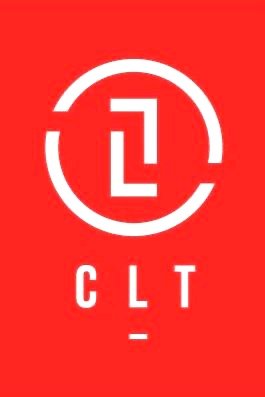Topic 2: The Screening Interview
As a hiring manager actively looking for Scrum Masters, I’ve read a lot of resumes and have said “No” to the majority of them. Are you guilty of committing any of the Scrum Master candidate mistakes that I see all the time? In this series of blogs, I’ll discuss my personal Do’s and Don’ts list, as well as address questions I’ve received from the Scrum Day MN 2017 audience that attended my talk on this subject. I’d love to hear from you and continue the conversation in the comments section below.
Scrum Masters – Why I Didn’t Hire You Topic 2: The Screening Interview
Looking over my notes, I typically receive about one hundred resumes for each open Scrum Master position, and I review every one of them, but I’ll move on quickly if I can tell that the person isn’t a good fit for my team (more on resume “bad smells” in another post). If I believe that there’s a possibility of a fit, my next step will be to schedule a thirty-minute phone interview. This is a “screening interview”, in which I’ll try to do two things:
· Attempt to verify that the candidate actually understands the Scrum framework and the role of the Scrum Master
· Gauge the candidate’s passion and energy for the work.
Something to keep in mind: it’s not as if I’m trying to screen people out – I truly come to each resume I review with a hopeful heart, willing this candidate to be a match for my team. However, my experience has been that only about 20% of the candidates submitting a resume receive a screening interview, and only about one-third of those screened make it to the next step.
This means that:
1. Four out of five resumes are not hitting enough of the right marks for me to want to spend any time talking with the candidate
2. Two-thirds of the candidates that I speak to do not successfully demonstrate that they understand the Scrum framework and the role of the Scrum Master
3. Ultimately only about 6% of people applying for my Scrum Master jobs make it to a full interview.
I have found that the best way for me to gauge a candidate’s capability is not by asking questions, but by listening the questions that the candidate asks me. In the screening interview, I spend time up front talking about the position and generally trying to establish a friendly and open conversation, but I’m working towards asking my main question, which is “What questions do you have for me?”
In response to my question, about half of the candidates I speak to tell me “I don’t think I have any questions at this point”. I’m really disappointed when I hear this, because it usually means I have to drop the candidate because I don’t have enough information to move forward with. I understand that it can be difficult to think clearly when you’re put on the spot, so here are some questions to have on hand for your next interview. Note that I’m giving you the questions but it will be up to you to ensure you understand why these questions are meaningful, and to be prepared for any conversations they spark. Also note I’m starting with what not to ask.
Terrible Question Which I Am Often Asked: (Don’t ask this one!)
What is the velocity of the team that I will be working with?
Assuming I knew the answer, of what value would that information be to you?
Mediocre Question Which I Am Also Often Asked: (Don’t let this be your only question)
Does the team use [insert name of tool here]?
I’ll grant that familiarity with the team’s toolset can be a “nice to have”, but you want the questions that you pose to demonstrate that you get this Agile/Scrum thing. This question may provide you with some interesting information, but it does nothing for me as the interviewer.
Better Question:
How does the team manage its workflow?
By asking this, you indicate your awareness that this is an approach that varies from team to team, and the answer can give you better information about the team environment.
Good Questions: (These communicate a basic understanding of Scrum values)
• How engaged is the Product Owner with the team?
• Are all team members 100% allocated to this team?
• Are QA skills included in the development team?
• Is the team co-located or distributed? How many time zones separate development team members?
Great Questions: (I would personally be very interested in a candidate asking these questions, which I think indicate a deeper, nuanced understanding of the value of Agile and Scrum)
• Is the team currently able to produce a Burn Up Chart? Do you trust the information it contains? Why or why not?
• How was the sprint length determined?
And finally, here are a few great questions you could ask to interview your interviewer, and use the information to determine if this is an organization that you want to work for:
• Who prioritizes work for the development team?
• Who manages the development team members, from a people/HR perspective?
• How often are development team members moved from team to team?
• What interaction does Project Management have with the Development team?
• Does your org employ “Dev Managers”? If so, what do they do?
• Are there any formal metrics that the team is expected to report on regularly?
Want to learn more? Check out our course schedule to take advantage of our upcoming opportunities!
About our Guest Blogger: Maclore Christensen is an Agile Delivery Manager with Thomson Reuters in Eagan, MN. Maclore leads the implementation of agile for the Risk Technology group and manages teams of ScrumMasters and Agile coaches in the USA, Canada and the UK.


